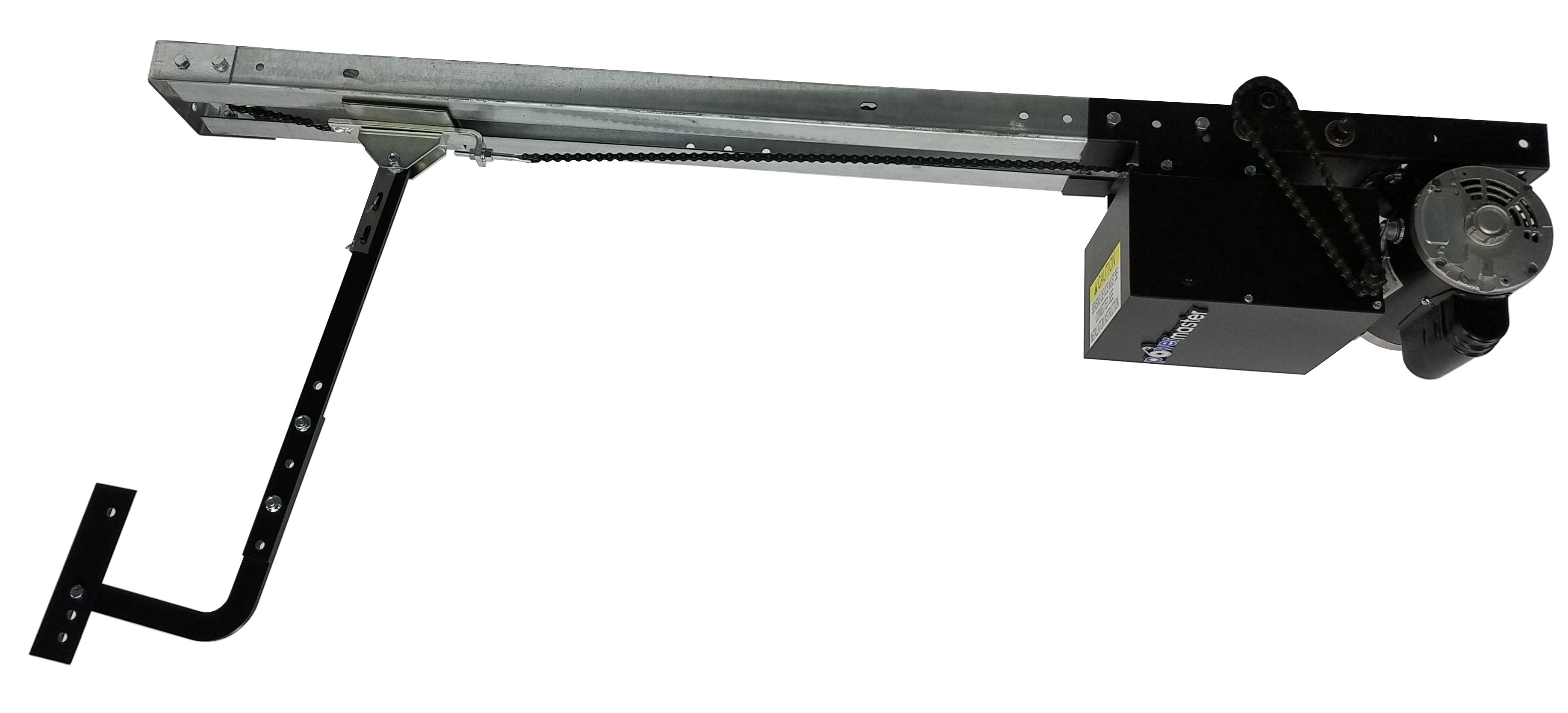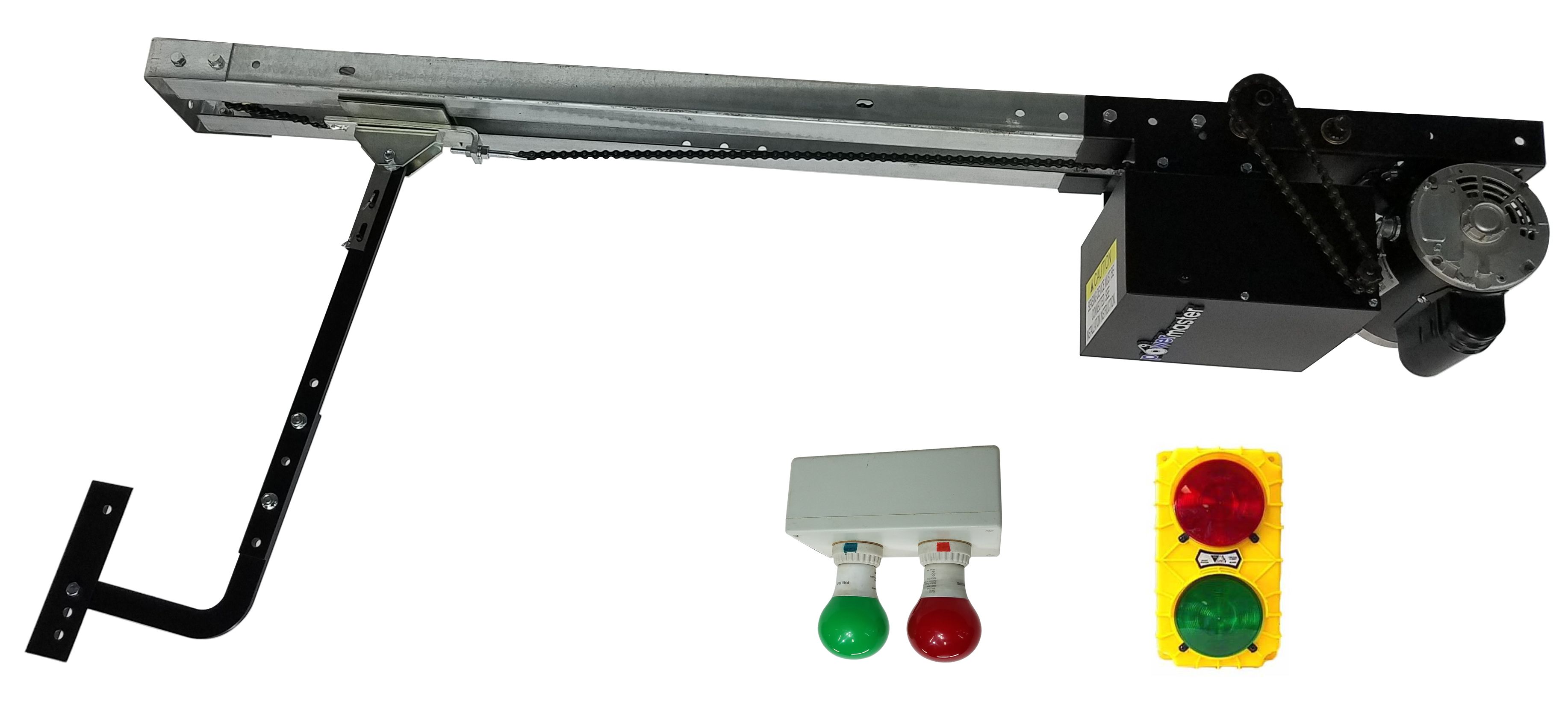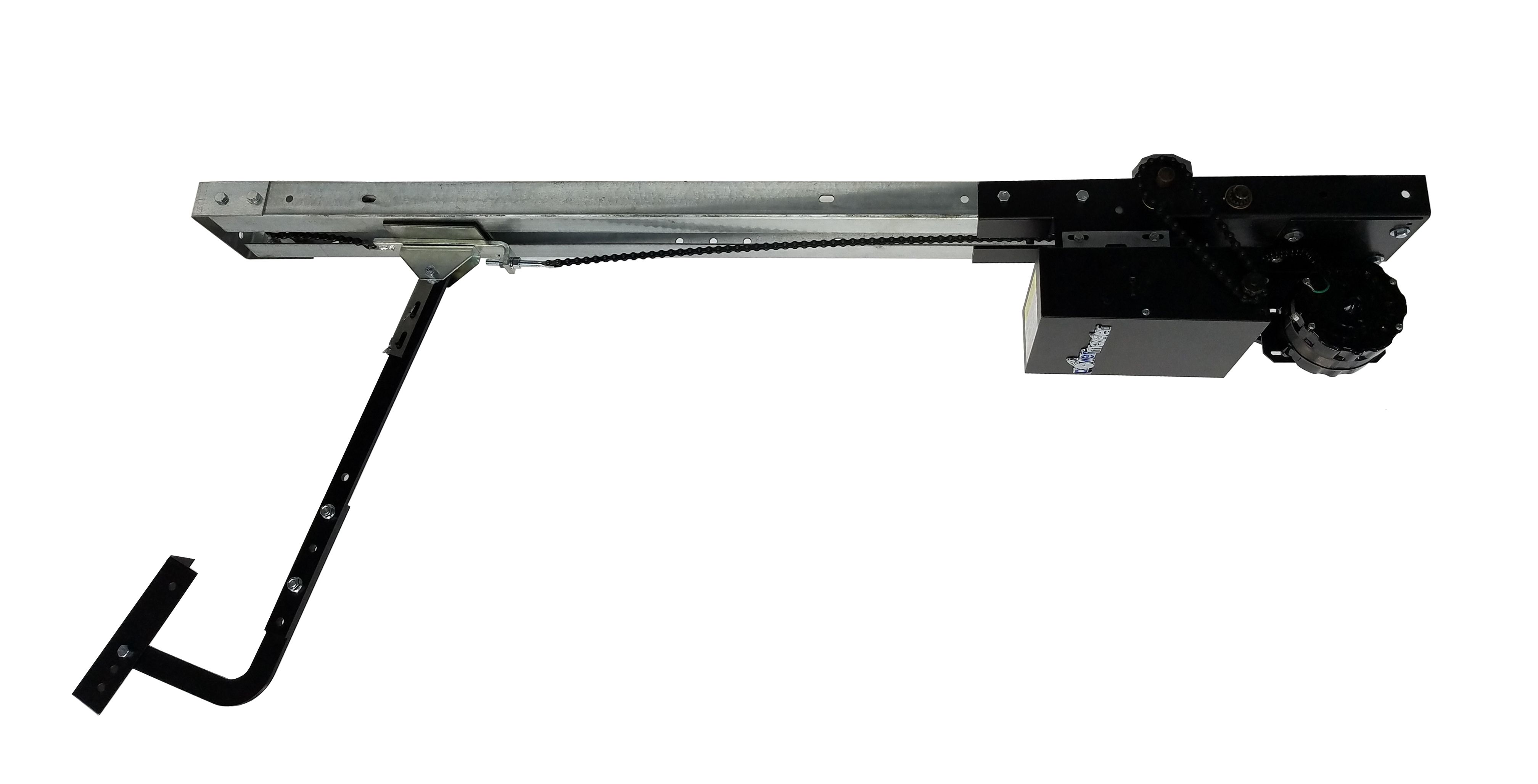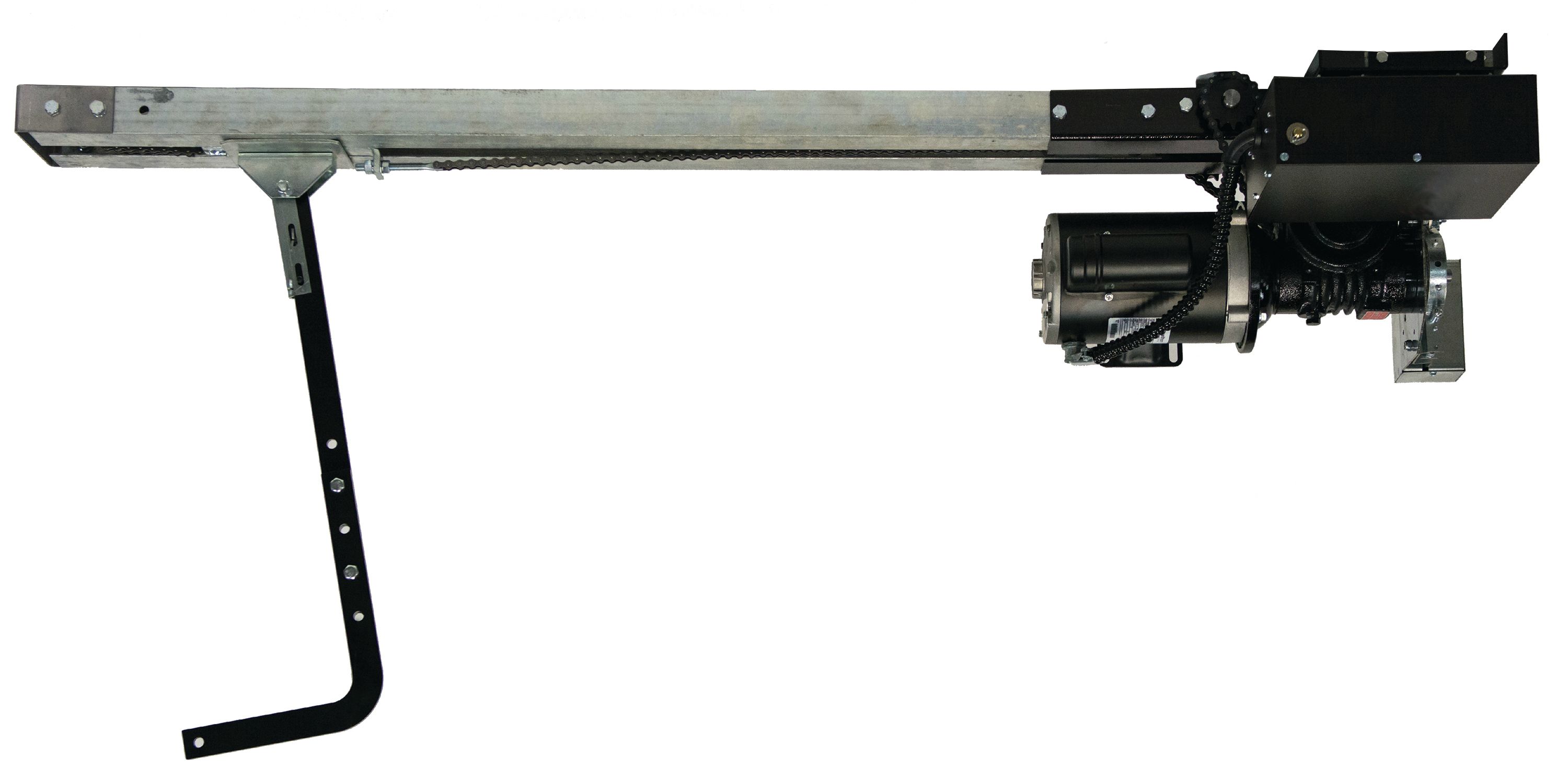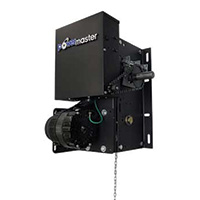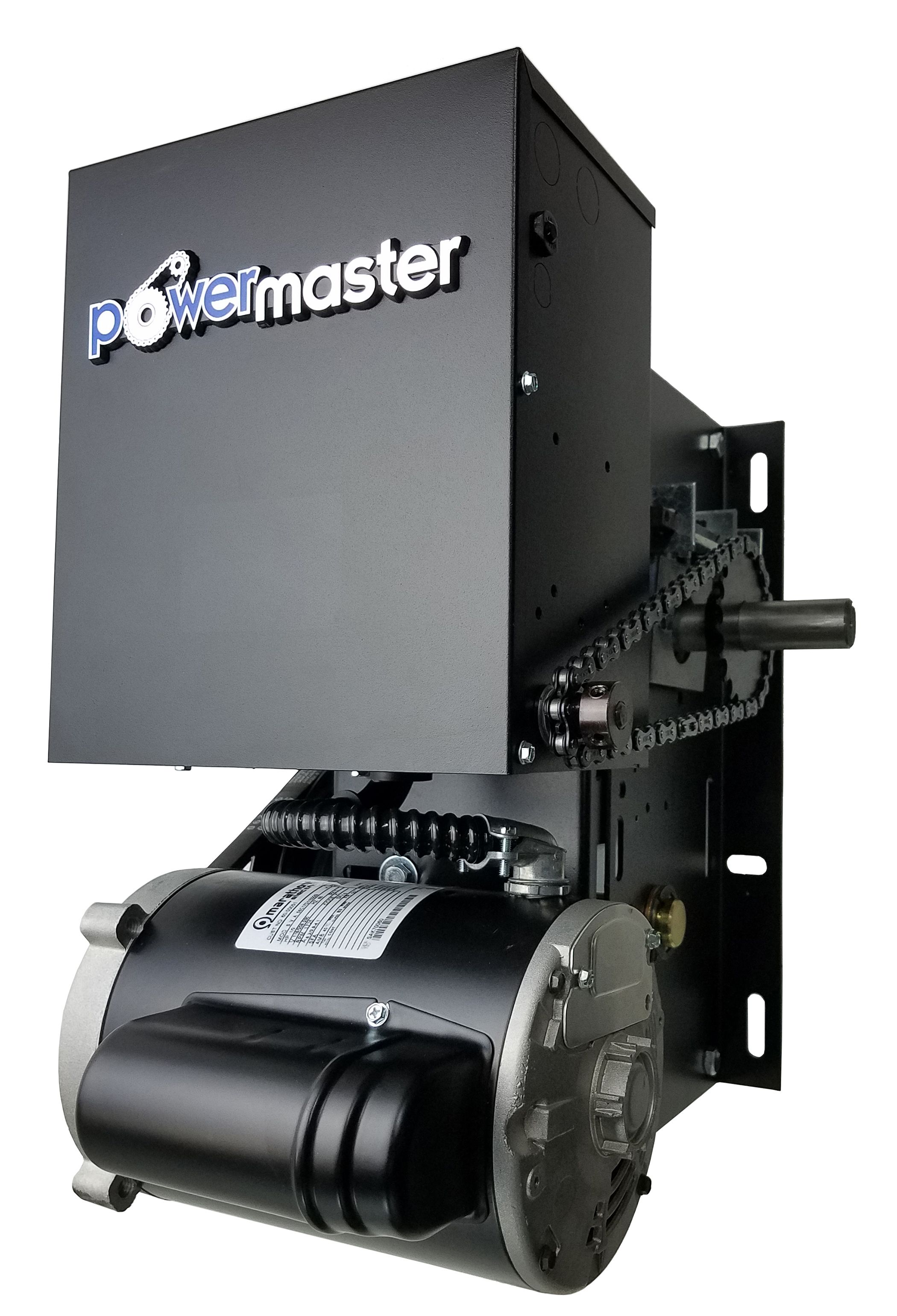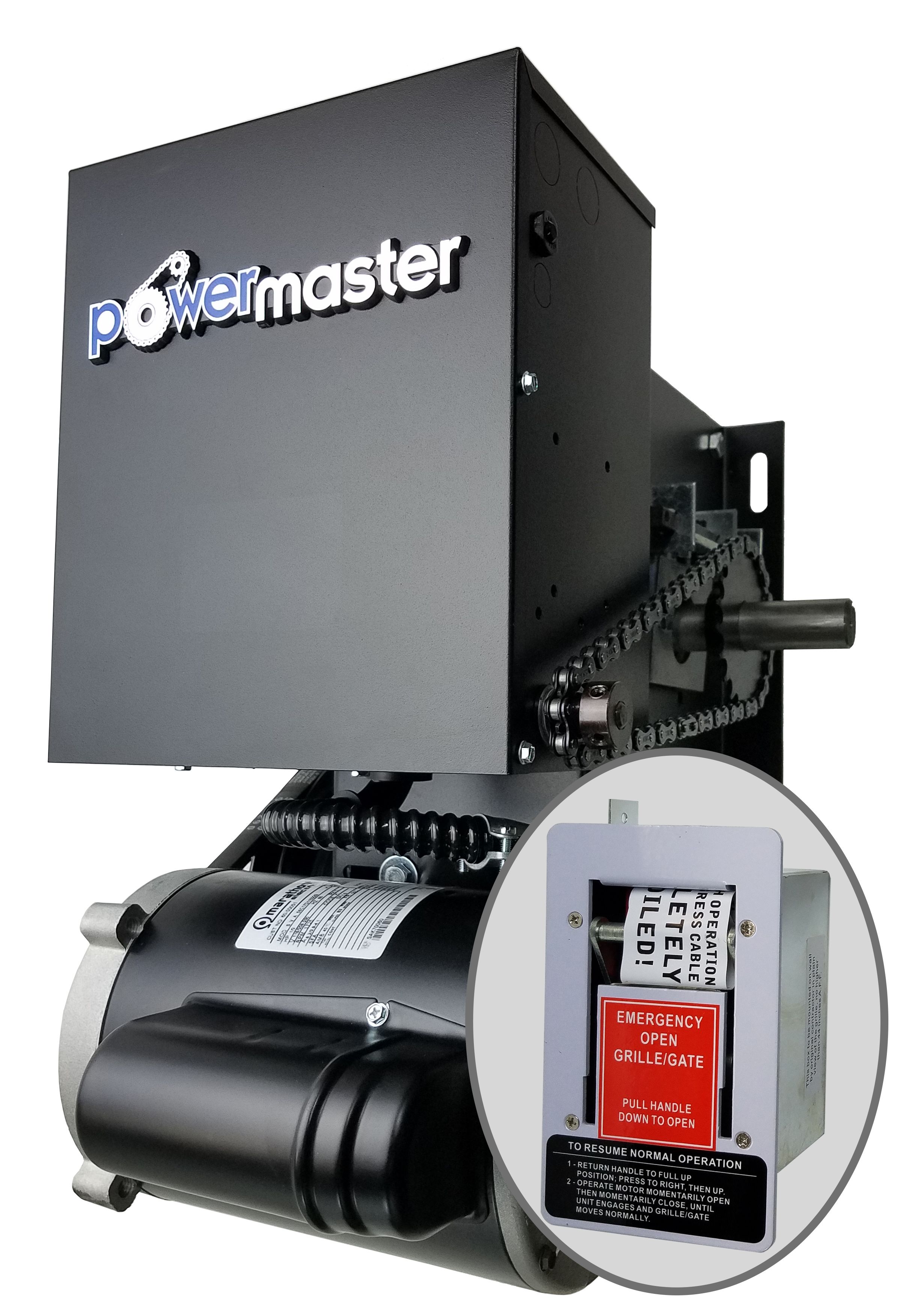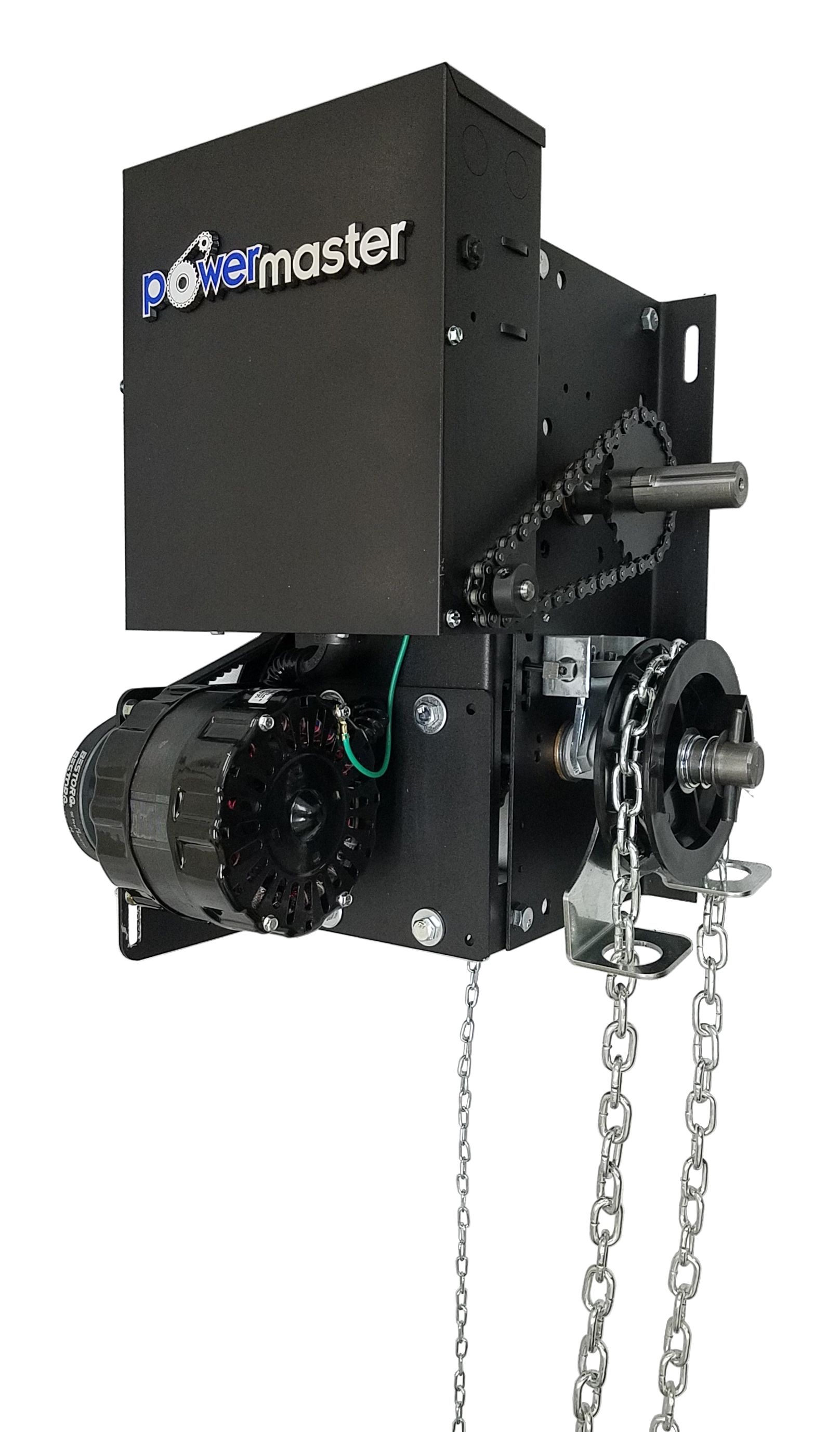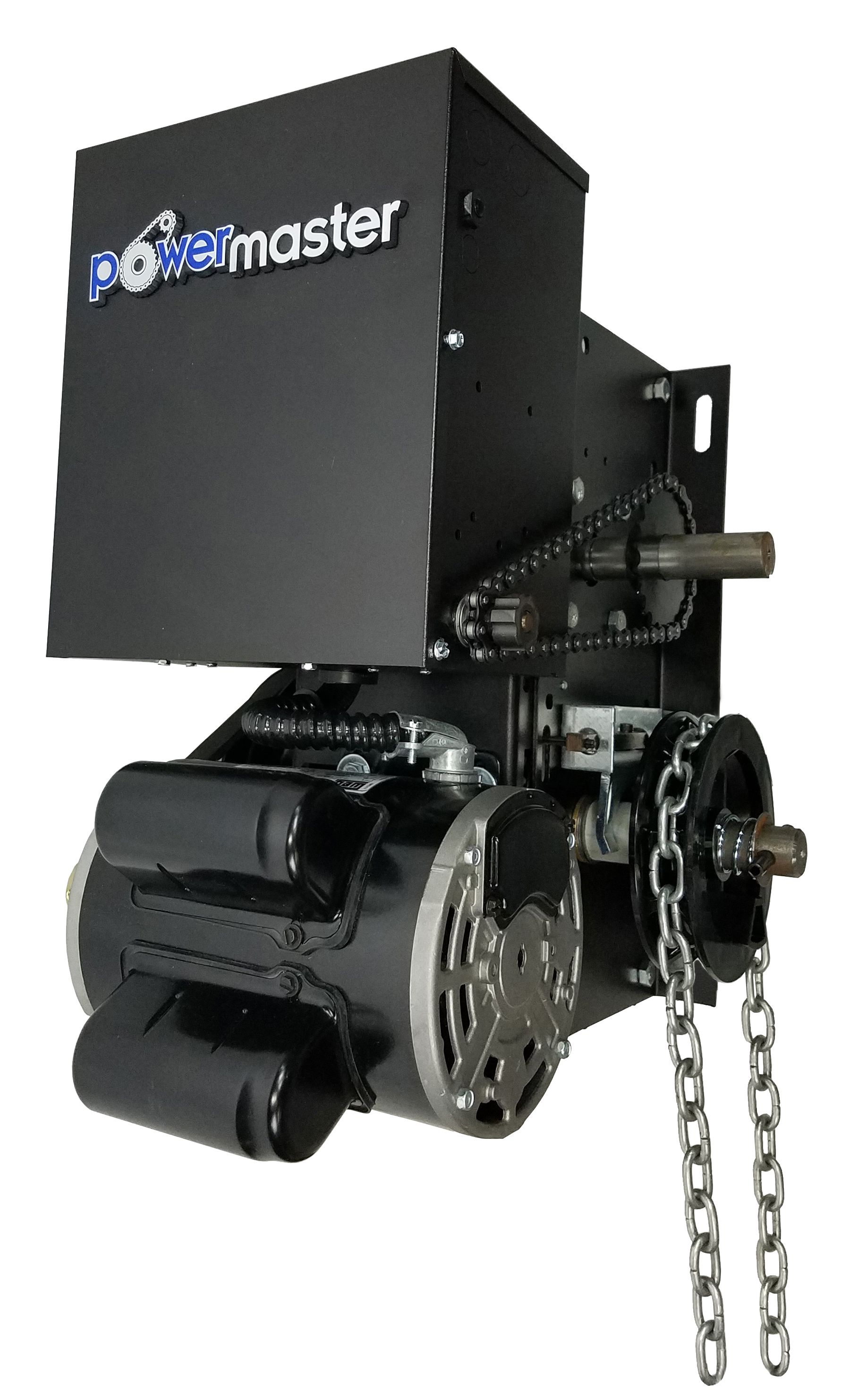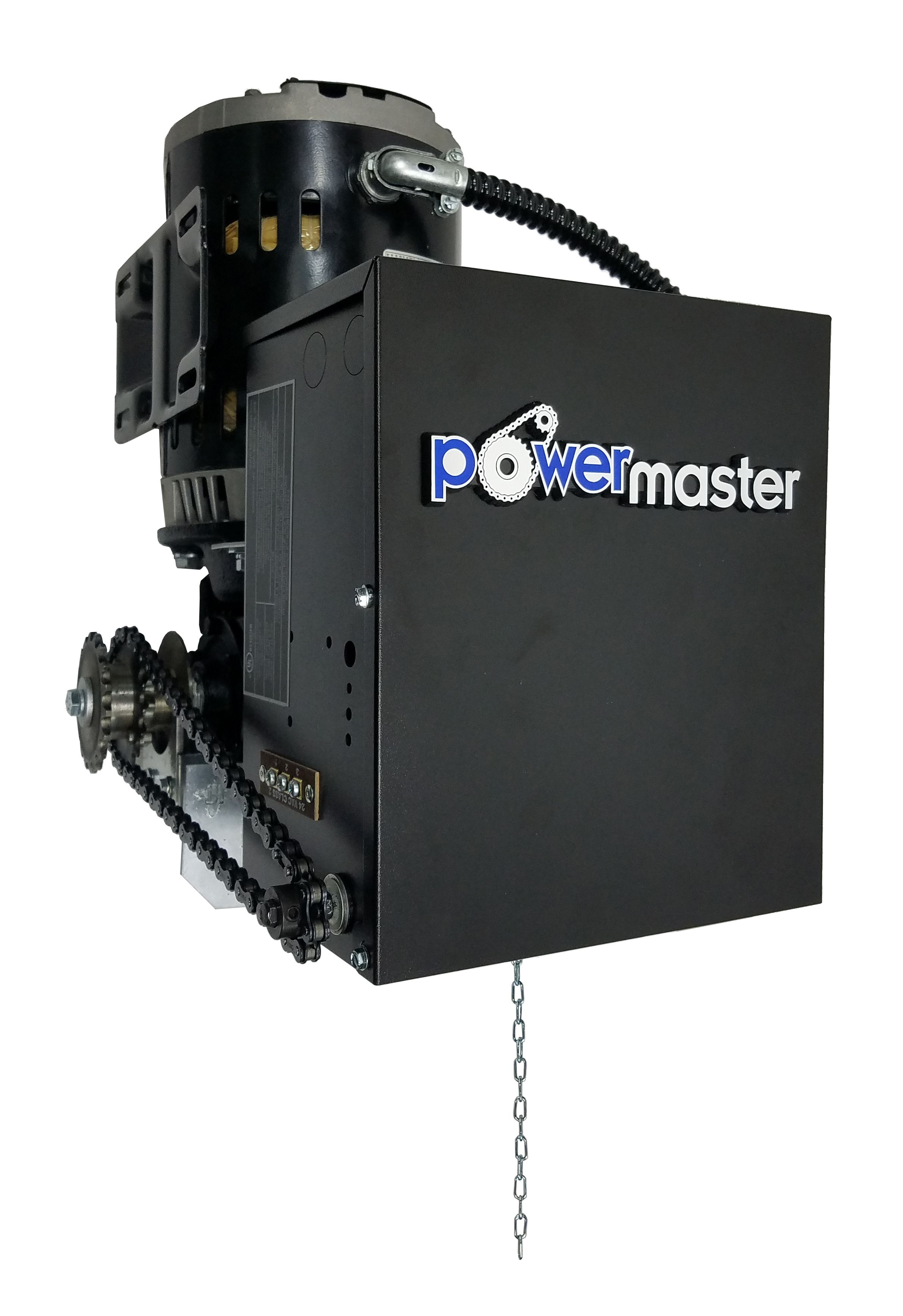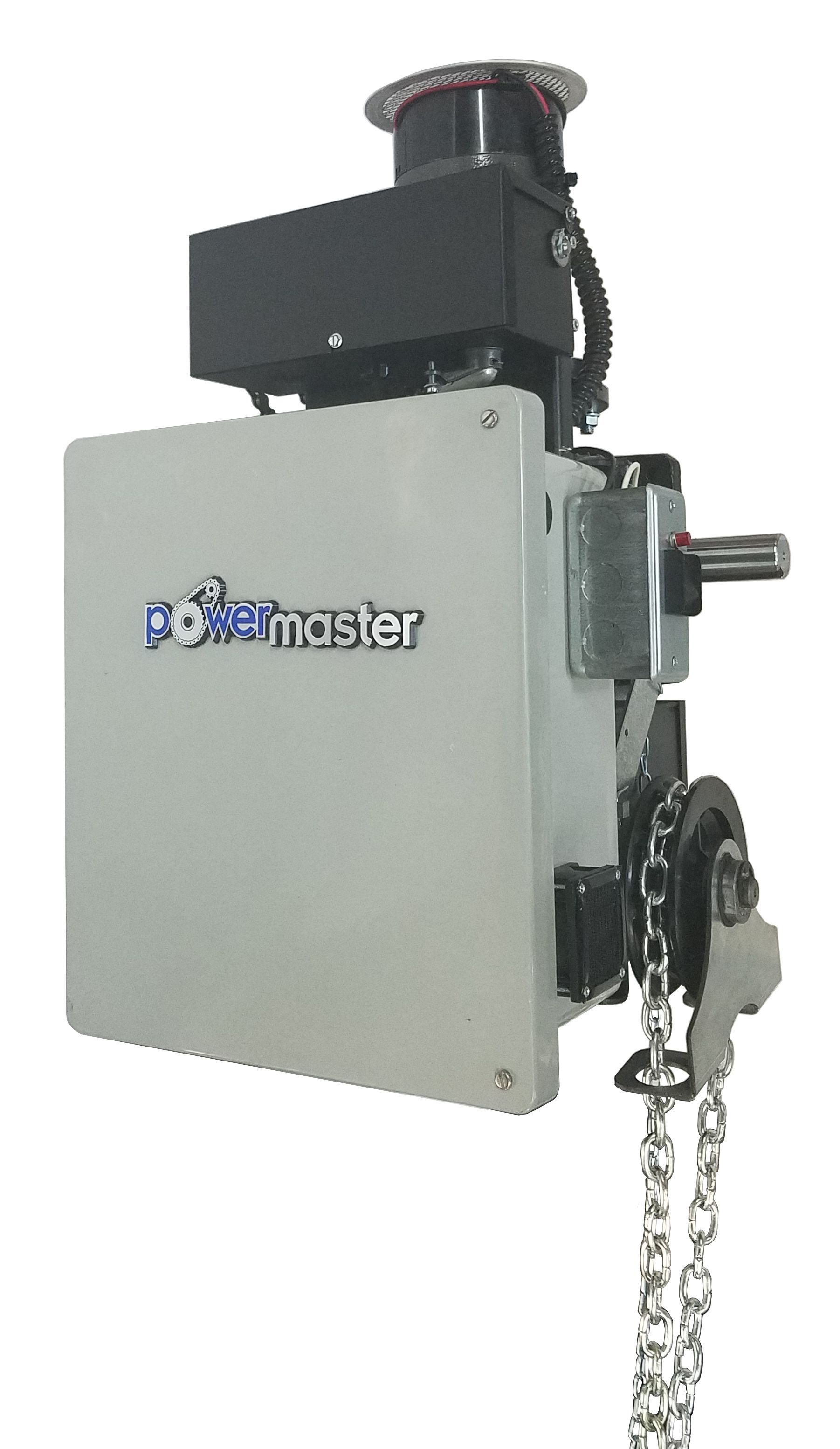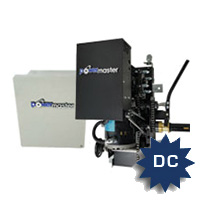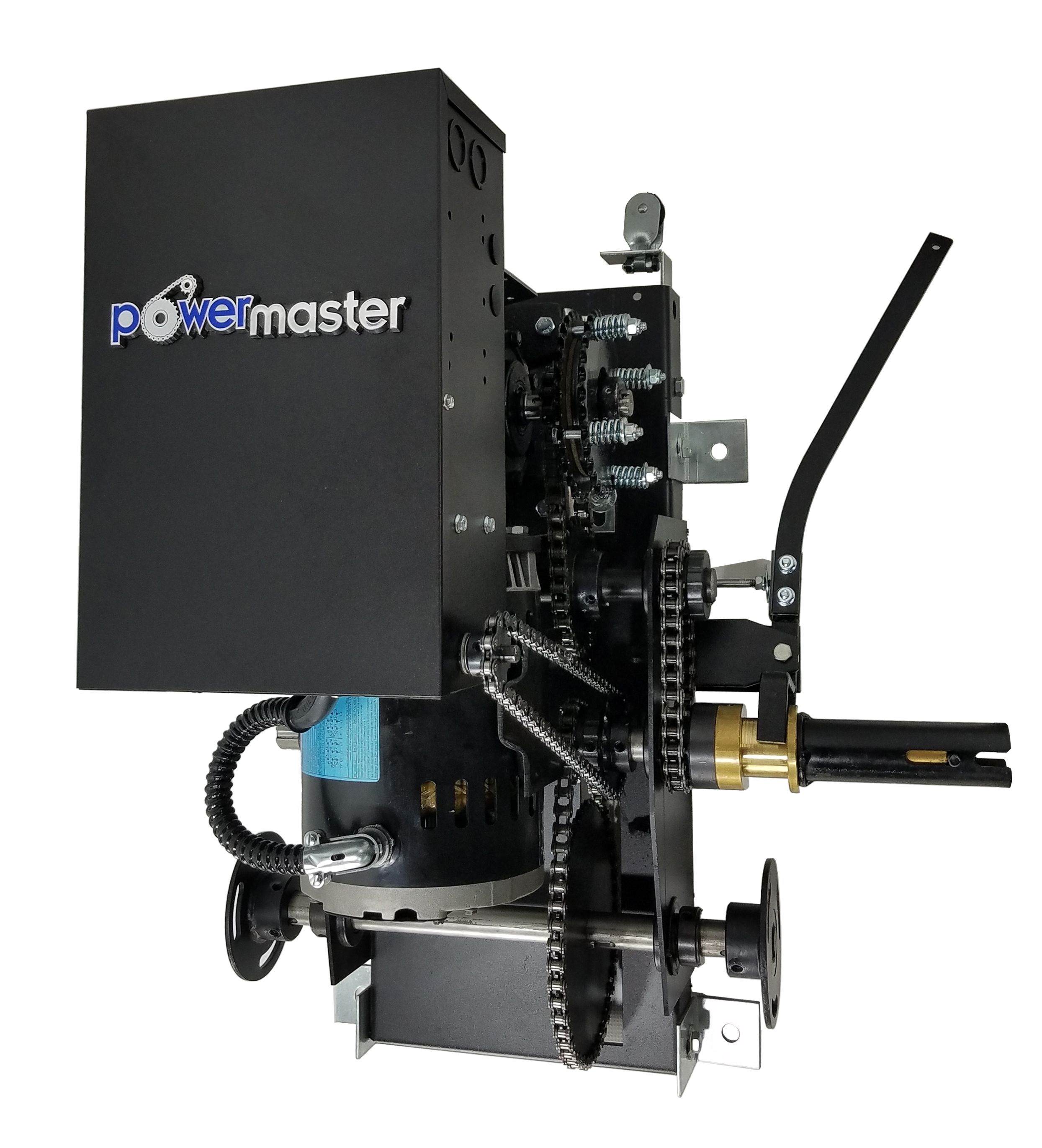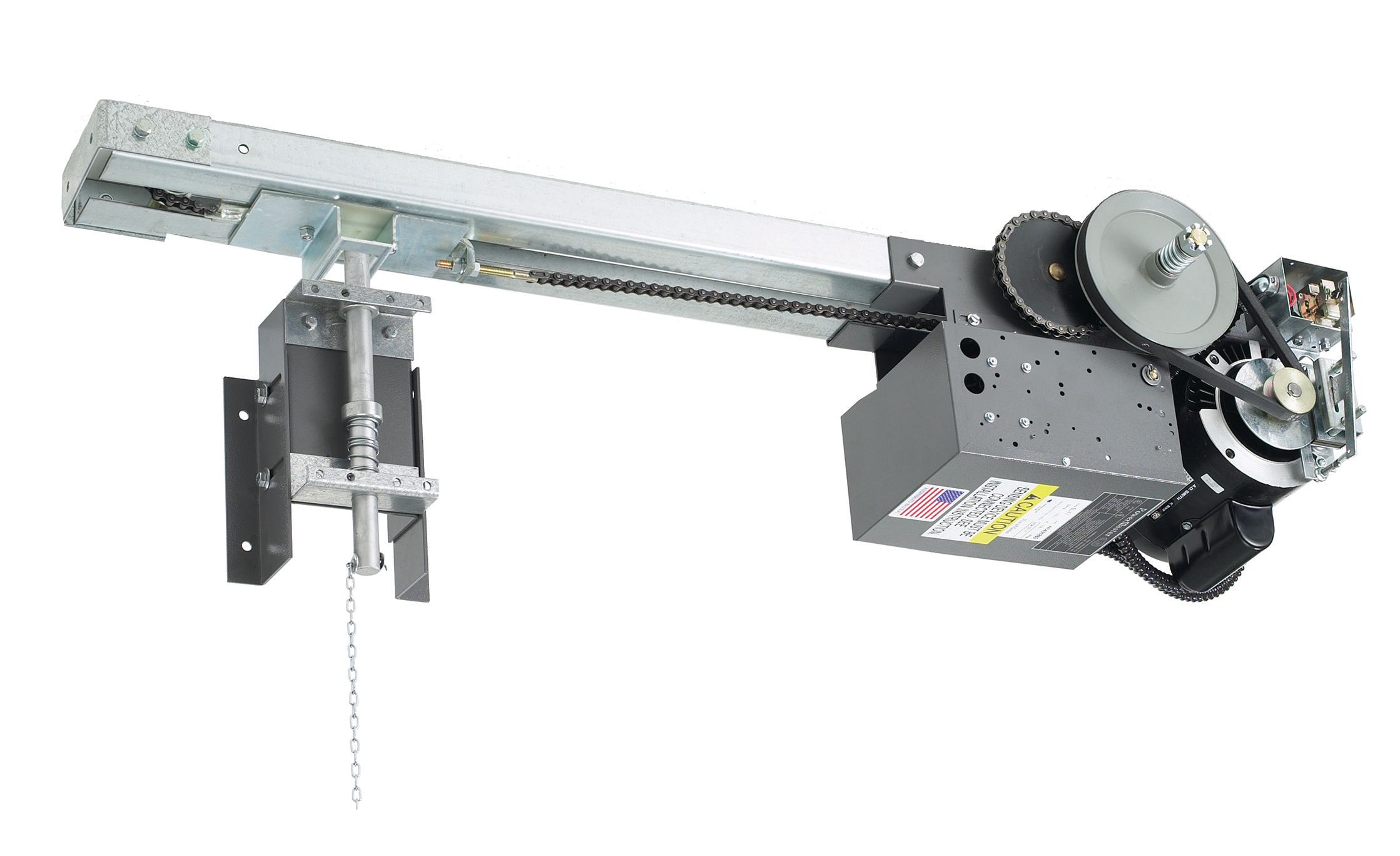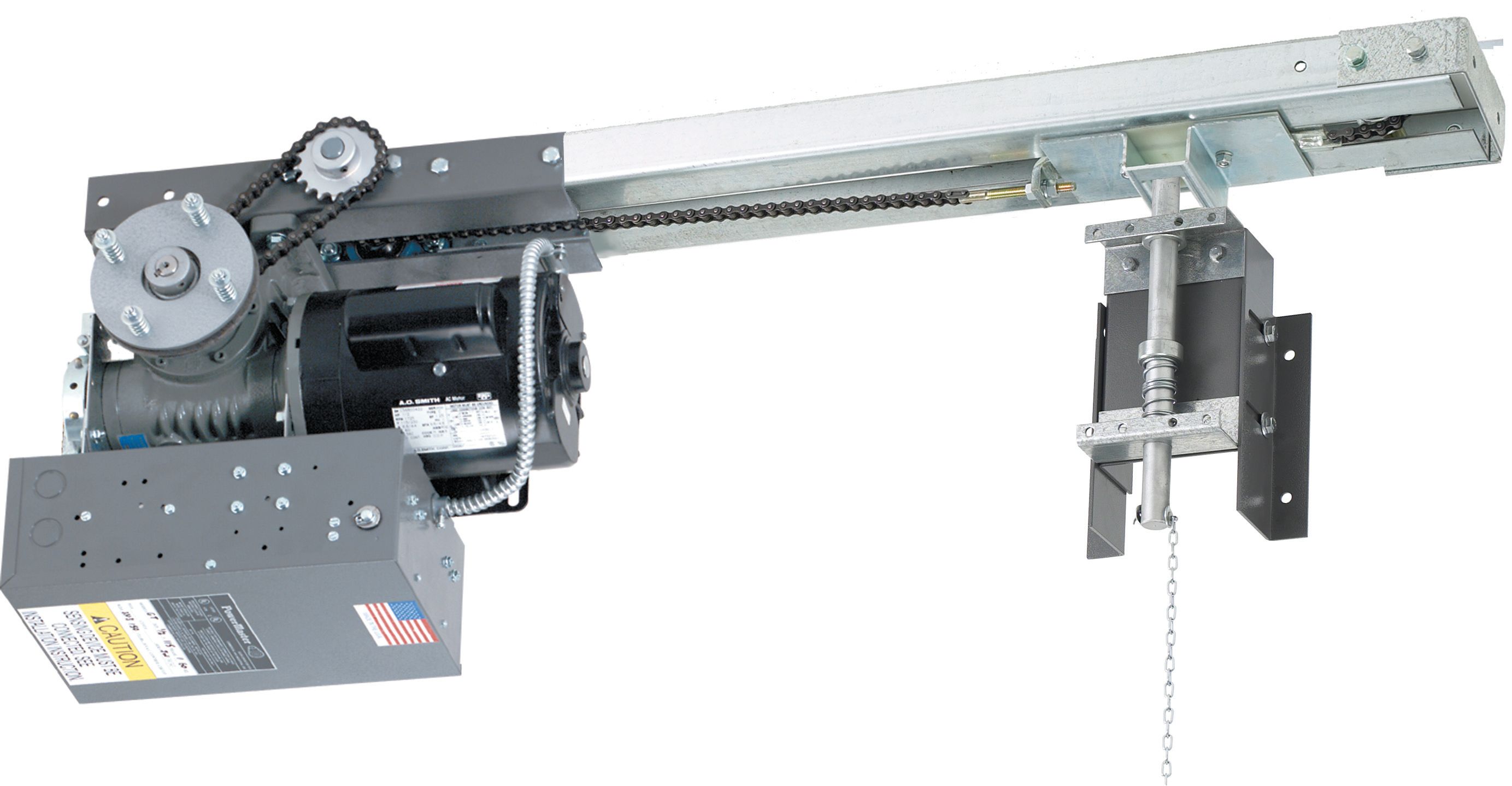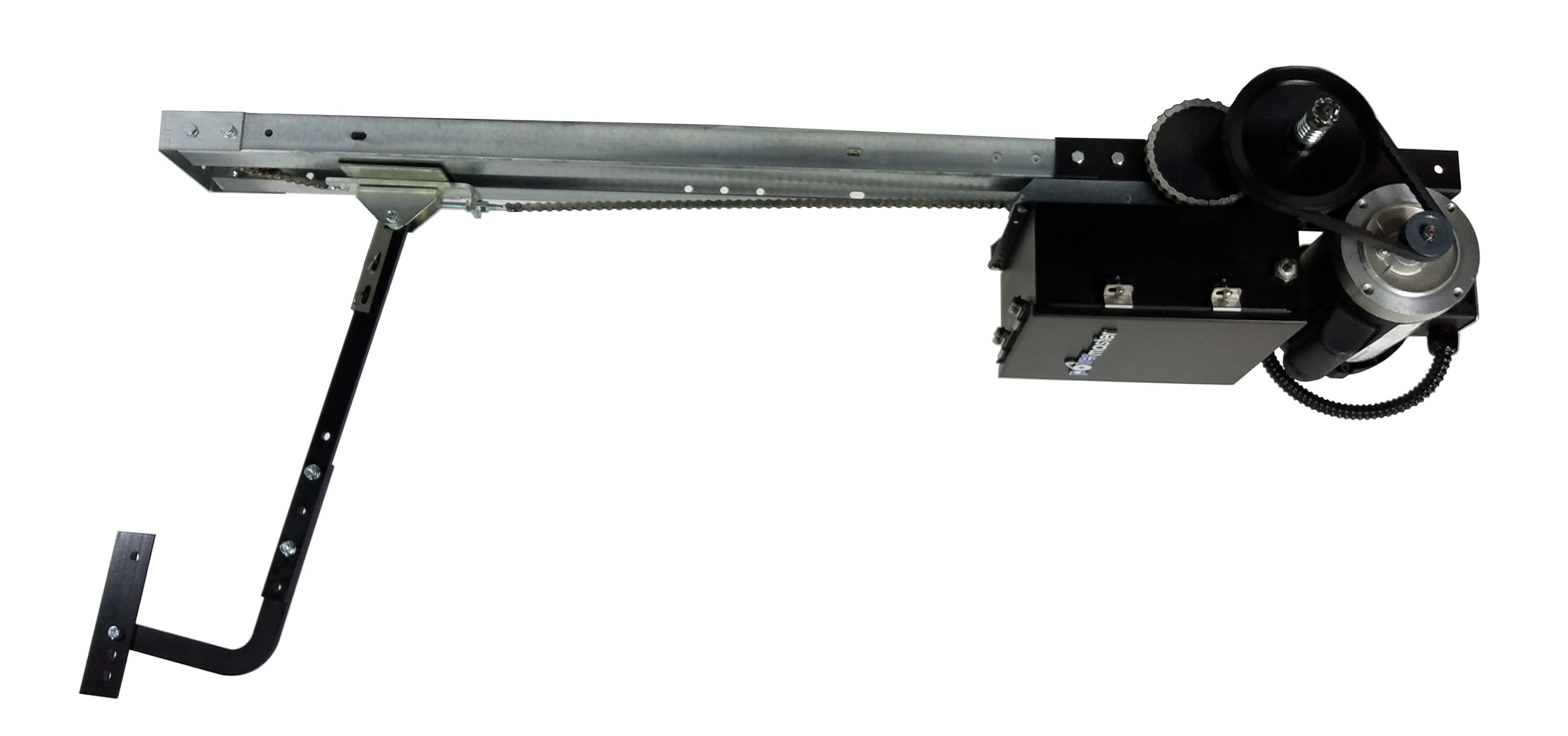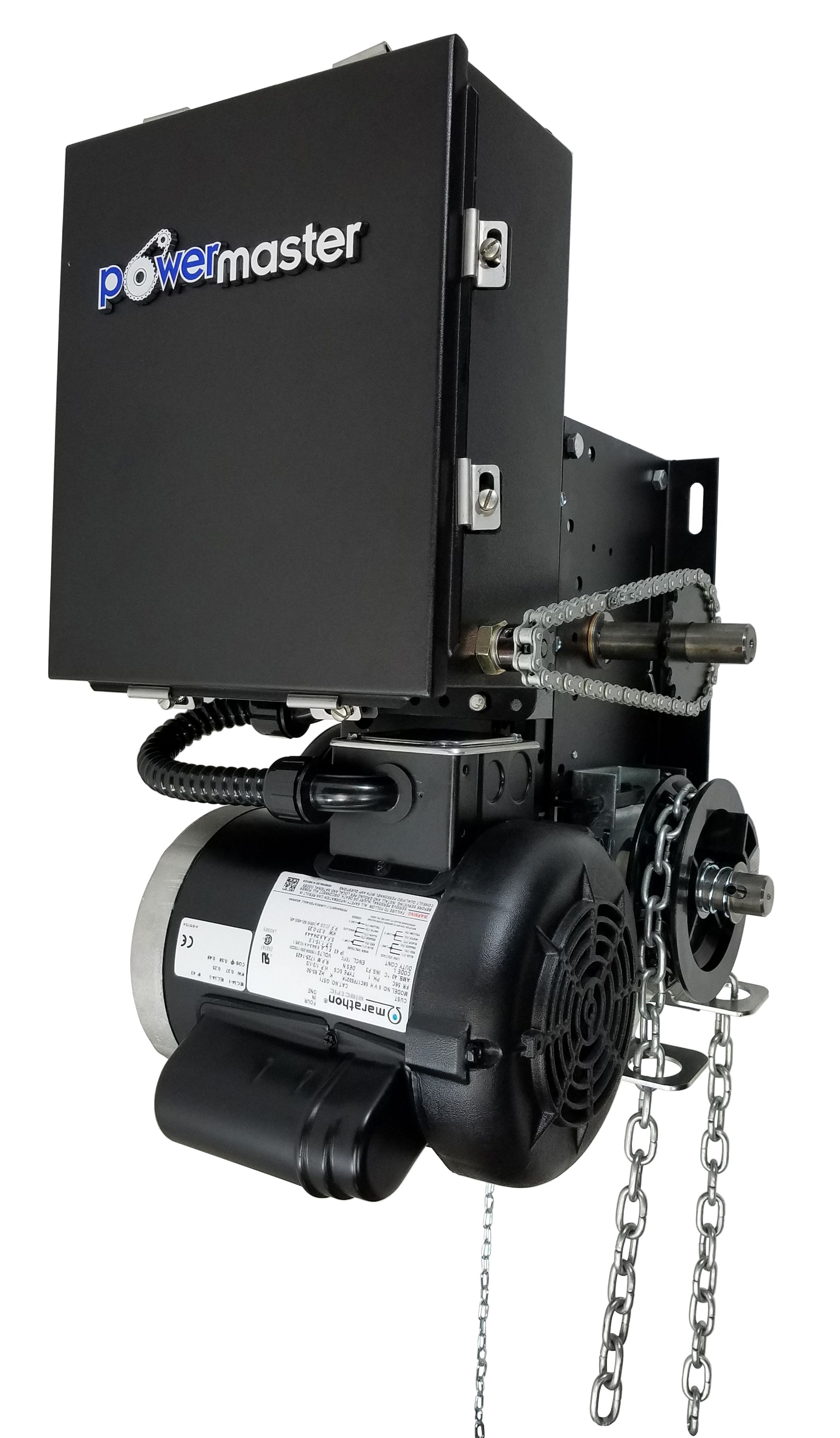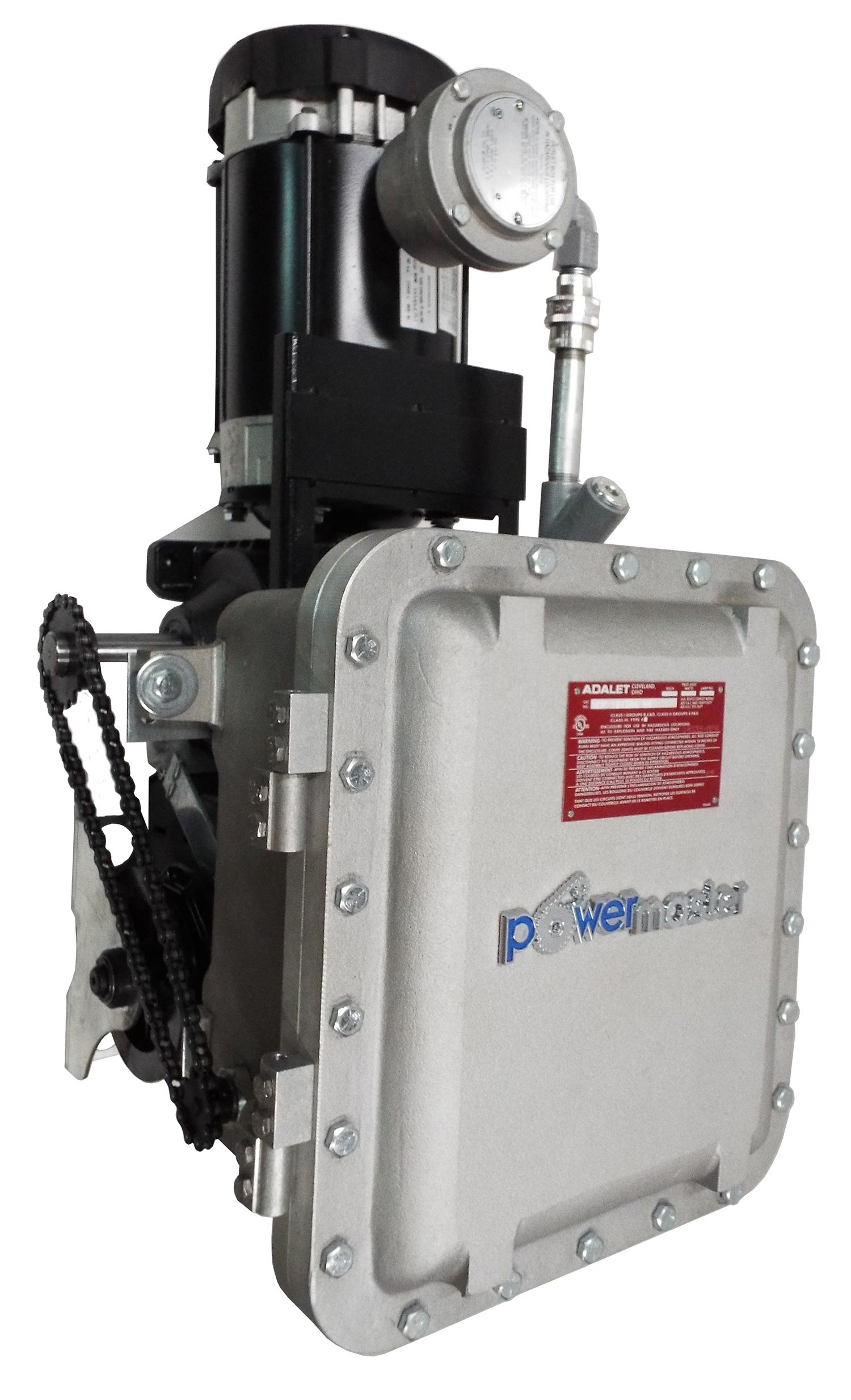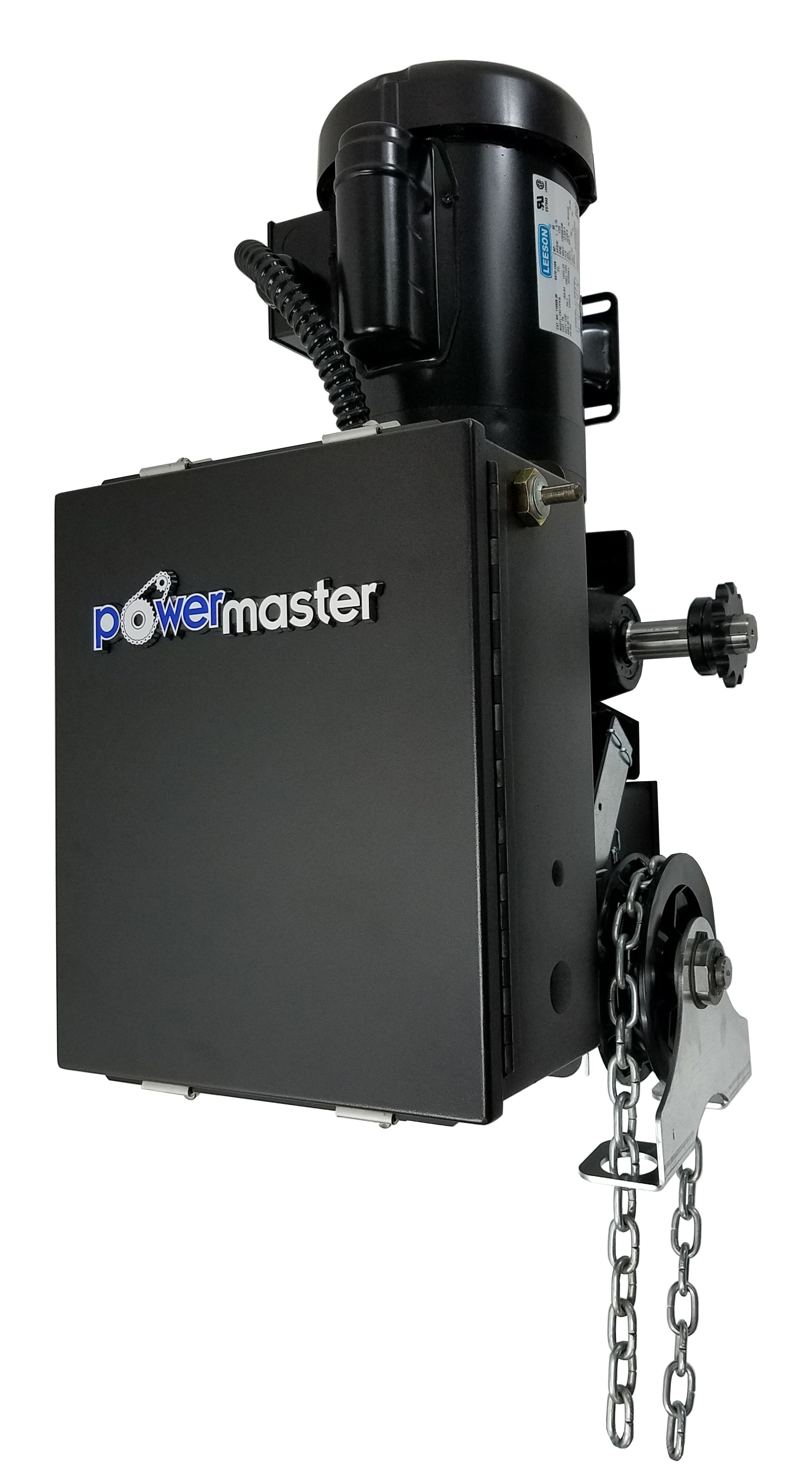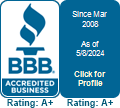PowerMaster Operators
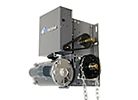
There are two basic systems of operators for commercial and industrial sectional and steel rolling doors - jackshaft and drawbar.
Jackshaft Operators
Jackshaft operators turn the torsion shaft on sectional doors and the drive shaft on steel rolling doors and grilles to open and close the doors.
On sectional doors the operators are mounted at either end of the torsion shaft, or they are centered above the door. When centered above the door, the drive shaft is either coupled to the torsion shaft, or it is mounted above the torsion shaft and the operator turns the door shaft using a chain and sprockets. These operators can be used on all three types of track systems: standard horizontal lift, which go straight back like most residential garage doors, high lift, which go up and then back, and vertical lift, which goes straight up. Check out our Youtube channel for garage door tutorials.
On steel rolling doors one end is the winding end which anchors the spring tension. The other end is the drive end with the drive shaft that the operator turns. This drive shaft can be at either end of the door. The operator is usually mounted on the side of the door and below the drive shaft. It raises and lowers the door using a chain and sprockets. Because rolling doors have heavy end plates, brackets are often added to the end plate to allow mounting the operator to the front or on top of the coiled curtain.
Most jackshaft operators often come with hoists. In the event of motor failure the door can be operated by hand or by pulling the chain.
Drawbar Operators
Drawbar operators open and close doors by using a trolley sliding in a drawbar to push and pull an arm attached to the top of the door. The point where arm attaches to the door is usually centered, but it can be offset as long as the door has a torsion shaft, drums and cables to keep the door level.
Drawbar systems are designed only for sectional doors with standard lift track systems. These will not operate steel rolling doors or sectional doors with vertical lift or high lift. Exceptions have been made, but neither DDM Garage Doors, Inc. nor V.E. Power Door, manufacturer of PowerMaster Operators, will stand behind the variations because of safety and liability issues.
In the event of power or motor failure the operator arm can be disconnected from the trolley and the door can be operated manually.
Jackshaft Operators on Standard Lift Doors
We do not recommend using Jackshaft operators on lighter doors weighing less than 500 pounds and which have standard lift tracks because the operator turns the shaft and the door has to roll as the motor releases tension on the cables. Any obstruction to the free travel of the door in the tracks transforms the door into a guillotine. Obstructions include dry, worn or missing rollers, bent track, loose door or track hardware or weather seal, and anything else that is temporarily placed in the path of the door. Drawbar operators are always the safer option and they should be chosen for standard lift doors unless space limitations prohibit installation.
If your application requires a jackshaft operator, we recommend raising the rear ends of the horizontal tracks at least a foot. If that is not possible, we recommend installing pusher springs to help get the door start closing from the open position. We also recommend safety bottom fixtures to help keep the cables on the drums. Whenever servicing one of these doors always check to make sure the cables stay on the drums as the door starts to close.
The jackshaft operator is much easier to install, and there is less wire to run, but you must heed the liability issues and make whatever changes are necessary.
Selecting an Operator
The simplest criteria for selecting an operator is to replace like with like, unless you had problems with your previous operator that you think may not have had the correct operator.
If you are not sure you had the correct operator, or if this is a new installation, here is what you need to consider.
First, determine the type of system - jackshaft or drawbar. If it is a jackshaft type, do you need a chain for operating the door if there is a power failure? If so you would need a hoist operator.
Second, determine the voltage. Check to see what is in the building. If you have a choice, notice the lower voltage operators cost less, but they don’t work as efficiently, and they tend to have more problems than the higher voltage three phase operators.
Third is horsepower, which you can determine by checking the horsepower chart.
Fourth is the door height. If you need a drawbar system, you’ll need to choose an operator with a rail long enough to accommodate the door height. On hoist systems the door height is needed to determine the correct chain length.
Fifth, for jackshaft operators, you need to provide the door shaft diameter and key size for the drive sprocket. Most sectional doors have one inch outside diameter shafts with quarter inch key way grooves in the shaft. On steel rolling doors the outside diameters of the drive shafts are as much as 1 ½,” and the keyway may be as much as 3/8” wide.
Sixth, also for jackshaft operators, determine the side on which you will be installing the operator. If you are installing the operator on a steel rolling door, let us know which mounting configuration you will be using and whether you need a mounting bracket.
Last, let us know of any special situations.
- Space Limitations. For trolley operators the drawbar needs at least 3” between the ceiling and the top of the door when it is at its highest point of travel. Most jackshaft operators need at least 12” of side room.
- Eyes. Eyes come standard with openers now. For safety, these are to be mounted within six inches of the floor. If vehicles are parking under the door, you may want a second set of eyes crossing the opening at a 45 degree angle.
- Center-Mount Operators. If you are centering an operator above the door, check to make sure there is enough space above the door to mount the operator. Also, if you are modifying a torsion assembly to couple an operator to the shaft instead of using a sprocket, you’ll need one or two couplers.
- International Sales. If you are ordering operators for use in countries outside the United States you may need 50 cycle motors. Let us know, as the 60 cycle motors used in the states will not work.
- Explosion Proof. Some volatile environments require sealed motors and electrical components.
- Water Proof. Some operators need to be mounted outside and many operate car wash doors. These are subject to extreme environmental conditions. Options for water resistant operators are available on many of the PowerMaster operators.
- Special Accessories. Let us know if you need radio controls, keyed outside switches, treadle hoses and switches, card entry systems, pull switches, or Miller Edge sensors.
If you are searching for operator parts, visit our PowerMaster Operator Parts page.
If you are searching for gate operators, visit our PowerMaster Gate Operators page.
$4284.00 EA
OCOM-DCGH-PM
PowerMaster D-CGH Center Mount Gearhead Operator w/DC Motor & Battery Backup, 1/2 HP 115V 1PH
$6622.56 EA
$6985.44 EA
$5755.68 EA
$5806.08 EA
$6158.88 EA
$6209.28 EA
OCOM-GSL151-PM
PowerMaster GSL-151 Gear Reduced Industrial Slide Door Operator 1-1/2 HP, 115/230V 1PH
$5905.87 EA
OCOM-GSL154-PM
PowerMaster GSL-154 Gear Reduced Industrial Slide Door Operator 1-1/2 HP, 230/460V 3PH
$5951.23 EA
$8559.43 EA
$5070.24 EA
$5120.64 EA
$5140.80 EA
OCOM-CJ74-PM
PowerMaster CJ-74 Carwash Jackshaft Operator 3/4 HP, 230/460V 3PH *NEMA 4 MODIFICATION*
$5191.20 EA
$5215.39 EA
$6531.84 EA
$5618.59 EA
$4822.27 EA
OCOM-EMG71-PM
PowerMaster EMG-71 Explosion Proof Gear Reduced Hoist Operator 3/4 HP, 115V 1PH *NEMA 7 & 9*
$10765.44 EA
OCOM-EMG74-PM
PowerMaster EMG-74 Explosion Proof Gear Reduced Hoist Operator 3/4 HP, 230/460V 3PH *NEMA 7 & 9*
$10846.08 EA
OCOM-EMG101-PM
PowerMaster EMG-101 Explosion Proof Gear Reduced Hoist Operator 1 HP, 115V 1PH *NEMA 7 & 9*
$11088.00 EA
OCOM-EMG104-PM
PowerMaster EMG-104 Explosion Proof Gear Reduced Hoist Operator 1 HP, 230/460V 3PH *NEMA 7 & 9*
$11168.64 EA
OCOM-EMG154-PM
PowerMaster EMG-154 Explosion Proof Gear Reduced Hoist Operator 1-1/2 HP, 230/460V 3PH *NEMA 7 & 9*
$11765.38 EA
OCOM-EMG204-PM
PowerMaster EMG-204 Explosion Proof Gear Reduced Hoist Operator 2 HP, 230/460V 3PH *NEMA 7 & 9*
